
Helen Thompson is the multimedia editor at Science News. She makes videos, creates data visuals, helps manage the website, wrangles cats and occasionally writes about things like dandelion flight and whale evolution. She has undergraduate degrees in biology and English from Trinity University in San Antonio, Texas, a master’s degree in science writing from Johns Hopkins University in Baltimore, Maryland, and strong opinions about tacos. Before Science News, she wrote for Smithsonian, NPR.org, National Geographic, Nature and others.

Trustworthy journalism comes at a price.
Scientists and journalists share a core belief in questioning, observing and verifying to reach the truth. Science News reports on crucial research and discovery across science disciplines. We need your financial support to make it happen – every contribution makes a difference.
All Stories by Helen Thompson
-
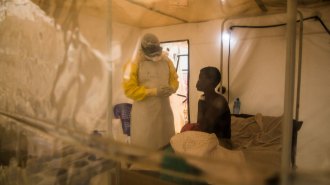 Health & Medicine
Health & MedicineThe second-worst Ebola outbreak ever is officially over
As Congo grapples with COVID-19 and other disease outbreaks, the country’s 10th battle against Ebola has ended.
-
 Health & Medicine
Health & MedicineCOVID-19 case clusters offer lessons and warnings for reopening
As restaurants, offices and other businesses open, trends in where and how COVID-19 transmission is happening could help guide re-entry strategies.
-
 Physics
PhysicsHere’s how the periodic table gets new elements
Today’s scientists keep adding to the periodic table. But an element has to earn its spot.
-
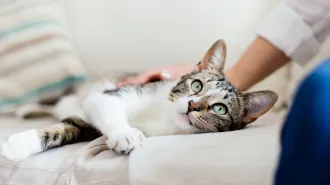 Animals
AnimalsA cat appears to have caught the coronavirus, but it’s complicated
While a cat in Belgium seems to be the first feline infected with SARS-CoV-2, it’s still unclear how susceptible pets are to the disease.
-
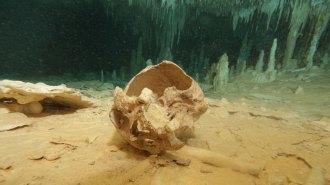 Archaeology
ArchaeologyAn ancient skeleton from an underwater Mexican cave sheds light on early Americans
A nearly 10,000-year-old skeleton discovered in a submerged Mexican cave provides more clues to how and when people settled the Americas.
-
 Health & Medicine
Health & MedicineOne number can help explain why measles is so contagious
The basic reproduction number, or "R naught," of measles shows how contagious the disease is compared with other pathogens.
-
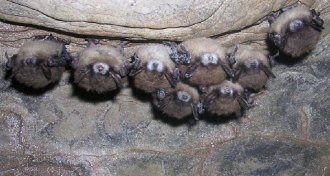 Animals
AnimalsVaccines may help bats fight white nose syndrome
Researchers are developing an oral vaccine that helps little brown bats survive the fungal disease white nose syndrome.
-
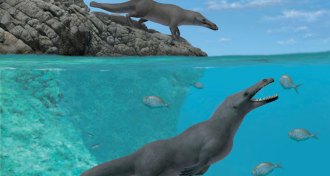 Paleontology
PaleontologyPeruvian fossils yield a four-legged otterlike whale with hooves
A newly discovered species of ancient whale unearthed in Peru split time between land and sea.
-
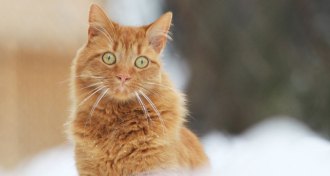 Animals
AnimalsCats recognize their own names
A new study suggests that cats can tell their names apart from other spoken words.
-
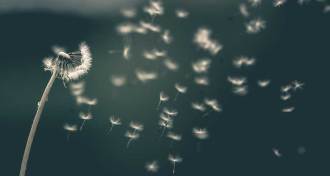 Life
LifeDandelion seeds create a bizarre whirlpool in the air to fly
Researchers have deciphered the physics underlying dandelion flight.
-
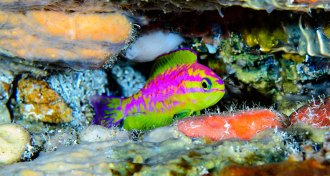 Animals
AnimalsThis new fish species displays a splash of highlighter hues
Researchers stumbled upon a new species of coral reef fish with spectacular coloration and a unique habitat.
-
 Science & Society
Science & SocietyBefore it burned, Brazil’s National Museum gave much to science
When Brazil’s National Museum went up in flames, so did the hard work of the researchers who work there.